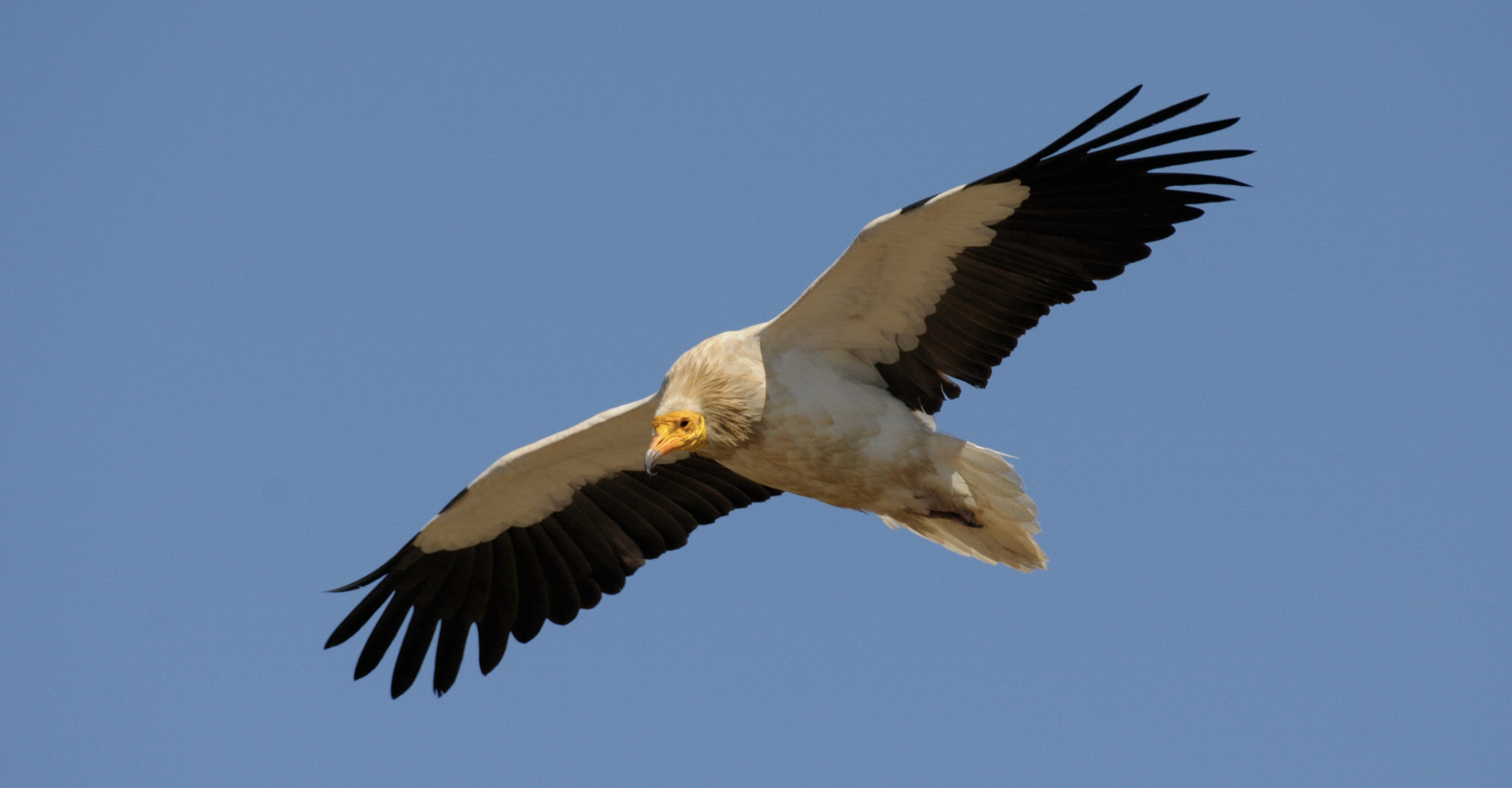After Egyptian vultures Rupis and Douro reached their wintering grounds in Mali, our eyes were on Poiares and Faia, the remainder two of the 5 Egyptian vultures that have been equipped with a GPS tag as part of the LIFE RUPIS project.
Poiares is a female Egyptian vulture that was found weakened in Poiares village, on the Portuguese side of the Douro canyon, and after a brief period of rehabilitation (see photo), was released with a tag (see photo). Poiares and her male managed to raise and fledge a chick, despite the absence of the female for 9 days when her offspring was quite young.
Poiares has now resurfaced, in Eastern Senegal – it followed a more western route tha the other birds and probably spent several weeks in areas with no GSM coverage, before resurfacing to life in our screens, a few days ago, in Senegal. We hope now that Faia does the same.
You can follow the movements of all these birds at our website here – https://www.4vultures.org/our-work/monitoring/egyptian-vulture-online-maps/
The LIFE RUPIS project aims to implement actions to strengthen the populations of the Egyptian vulture (and the bonelli´s eagle) at the trans-border Douro, by reducing the mortality of these birds and increasing their breeding success. The Egyptian vulture is the smallest vulture in Europe, and it is classified as “Endangered” – in Europe its populations have declined by 50% over the last 40 years.
The project includes equipping electric lines against electrocution, several actions that aim to minimize the threat of illegal poisoning, targeted management of over 1,000 hectares of important habitats for the species and also the creation of a network of supplementary feeding stations.
The project is implemented by the VCF and partners, including SPEA (BirdLife in Portugal), ATN and Palombar (regional conservation organisations in NE Portugal), the Junta de Castilla y Leon & the Fundación Patrimonio Natural de Castilla Y León, the Portuguese electricity distributor EDP-D, the Portuguese statutory conservation agency ICNF and the Portuguese environmental police force (GNR), and is co-funded by the MAVA Foundation.
Photos: VCF


